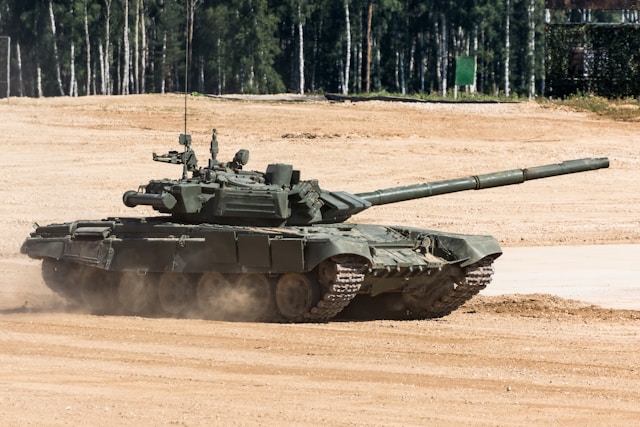
Gettysburg, synonymous with the American Civil War, took on an unexpected role during World War Two. Known for its historic battlefields and Lincoln’s iconic address, the town became the unlikely host of a significant wartime conference. Here, Allied leaders gathered to discuss strategies, strengthen their collaboration, and address the complexities of a global conflict. The Gettysburg gathering underscored the enduring relevance of history as a foundation for future victories.
Gettysburg’s Historical Significance Meets Wartime Necessity
Choosing Gettysburg as the venue for a World War Two conference was both symbolic and strategic. As the site of one of America’s most decisive battles, the town embodied the values of sacrifice, resilience, and unity. These were qualities the Allied leaders sought to channel as they faced the daunting challenge of defeating the Axis powers.
The tranquil yet solemn atmosphere of Gettysburg provided the perfect setting for focused deliberations. Removed from the chaos of significant cities and war zones, the leaders found a space to think deeply and collaborate effectively. The choice of location also reminded participants of the importance of perseverance, even in the face of overwhelming odds.
A Meeting of Minds: Key Figures in Attendance
The Gettysburg Conference brought together an array of military leaders, diplomats, and strategists from the Allied nations. Among them were figures whose contributions would shape the trajectory of the war. Their presence signaled a collective commitment to overcoming national differences and working toward a unified goal.
These individuals represented diverse perspectives and expertise, from military tactics to logistical planning. This diversity enriched the discussions, allowing the conference to address complex challenges from multiple angles. The camaraderie and mutual respect fostered during the meeting became a cornerstone of Allied unity, strengthening the bonds between nations.
Strategic Outcomes of the Conference
The Gettysburg gathering yielded several strategic outcomes that had a profound impact on World War Two. One of the most critical discussions revolved around synchronizing operations across the European and Pacific theaters. By coordinating their efforts, the Allies could ensure that resources were used efficiently and that their campaigns complemented one another.
Additionally, the conference emphasized the importance of psychological warfare and propaganda as tools for undermining Axis morale. Leaders recognized that the war was as much about winning hearts and minds as it was about winning battles. These discussions led to the development of campaigns that would weaken enemy resolve and rally support for the Allied cause.
Innovation as a Key Theme
Innovation played a central role in the discussions at Gettysburg. The leaders understood that adapting to rapidly changing circumstances was essential for maintaining an edge over the Axis powers. From technological advancements to improved logistics, the conference became a breeding ground for new ideas.
One notable area of focus was intelligence-sharing. The conference highlighted the need for better coordination among Allied intelligence agencies, leading to the creation of systems that facilitated real-time information exchange. This improved flow of intelligence proved invaluable in anticipating enemy movements and planning successful operations.
The Human Cost of War
While much of the conference focused on strategy and logistics, the human cost of the war was never far from the participants’ minds. Gettysburg, with its monuments to Civil War soldiers, served as a poignant reminder of the sacrifices made in pursuit of freedom. This historical context added a moral dimension to the discussions, prompting leaders to consider the broader implications of their decisions.
Efforts to minimize civilian casualties and provide aid to displaced populations became integral to the Allied strategy. The leaders recognized that their actions would shape not only the outcome of the war but also the world that emerged in its aftermath. Their commitment to balancing military objectives with humanitarian concerns set a precedent for future conflicts.
Gettysburg’s Role in Shaping the Post-War World
The Gettysburg Conference’s impact extended beyond the battlefield. The strategies and relationships forged during the meeting laid the groundwork for post-war recovery and cooperation. The leaders began to envision a world where international collaboration could prevent future conflicts and promote global stability.
Gettysburg itself gained a renewed sense of relevance, becoming a symbol of unity and progress. The town, already steeped in history, now represented the ability to learn from the past and apply its lessons to contemporary challenges. Its role in World War Two added a new chapter to its storied legacy.
Lessons for Modern Leadership
The Gettysburg conference offers valuable lessons for modern leaders, particularly in the areas of collaboration and adaptability. The event demonstrated the power of bringing diverse perspectives together to solve complex problems. It also highlighted the importance of innovation and ethical decision-making in achieving lasting success.
Today, the Gettysburg gathering reminds us that unity and shared purpose can overcome even the most formidable challenges. By studying this pivotal moment in history, leaders can gain inspiration for navigating the complexities of the modern world.
The Gettysburg World War Two conference was a turning point in both the war and the history of international collaboration. By merging the lessons of the past with the demands of the present, the leaders who gathered there demonstrated the enduring power of unity and innovation. Gettysburg’s transformation from a Civil War battleground to a hub of wartime strategy underscores its timeless relevance as a symbol of resilience and progress.
As the world continues to face new challenges, the story of Gettysburg reminds us of the importance of learning from history, working together, and striving for a better future. The remarkable conference held in this iconic town remains a testament to the strength of collective action and the enduring pursuit of peace.